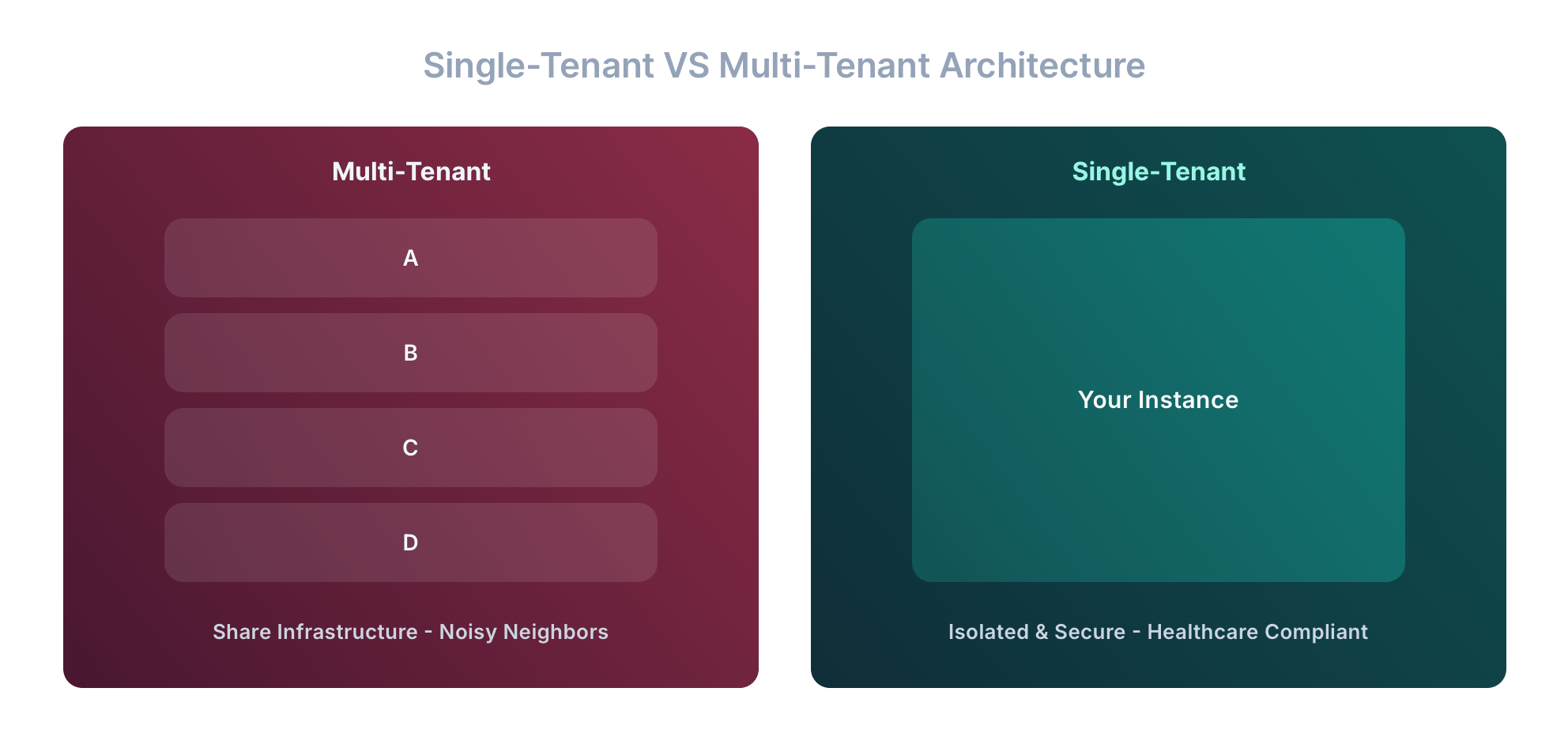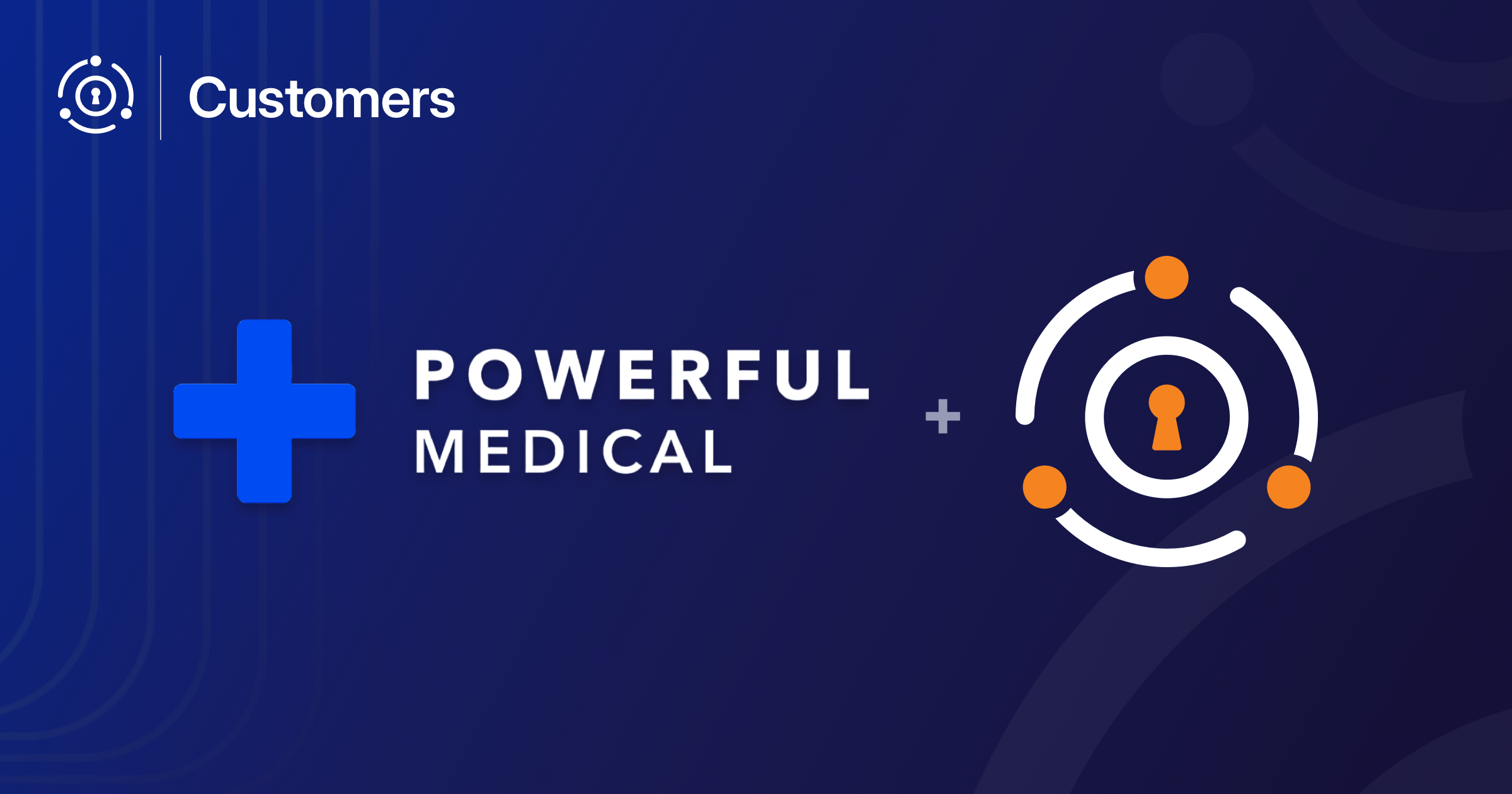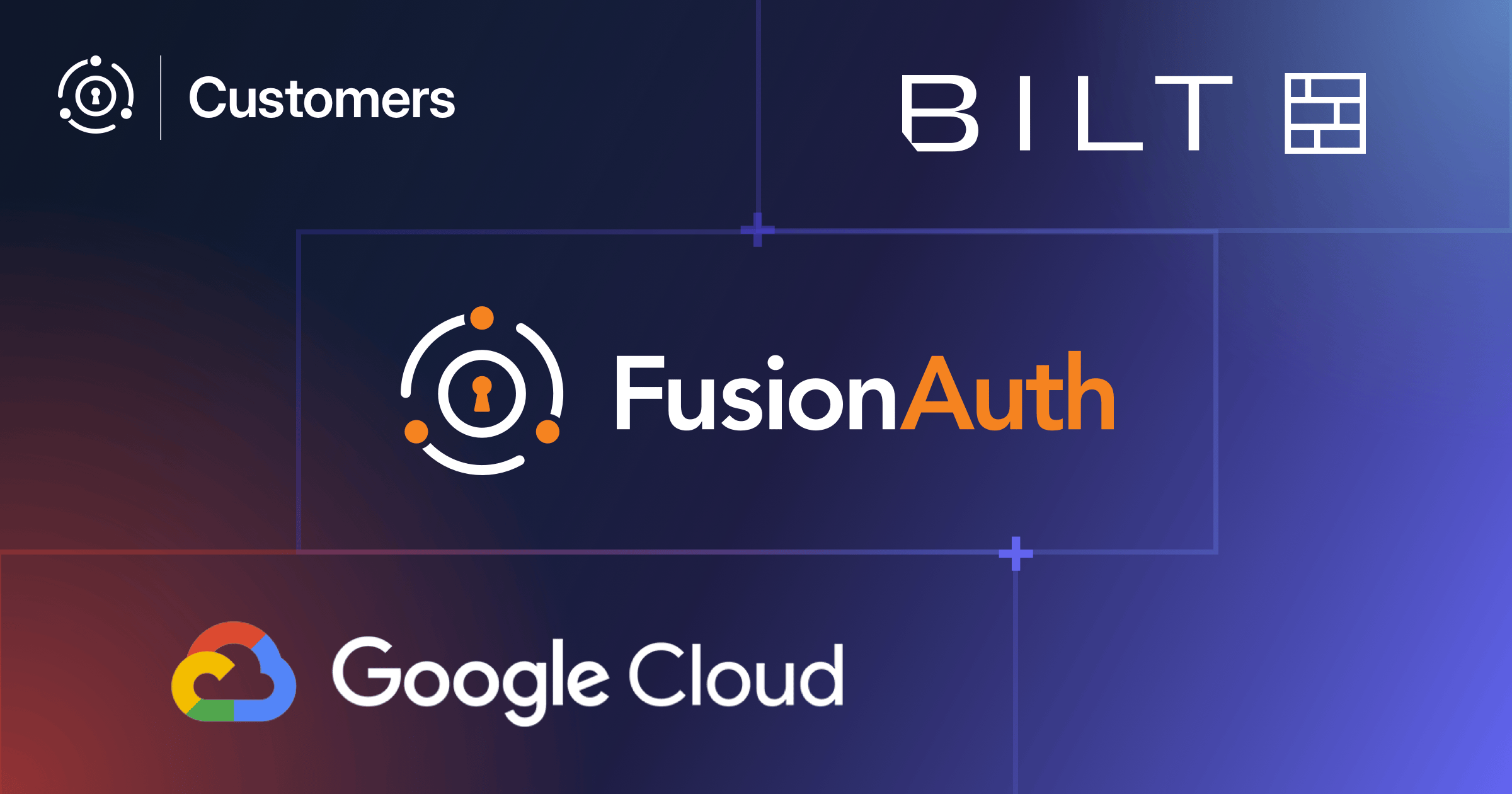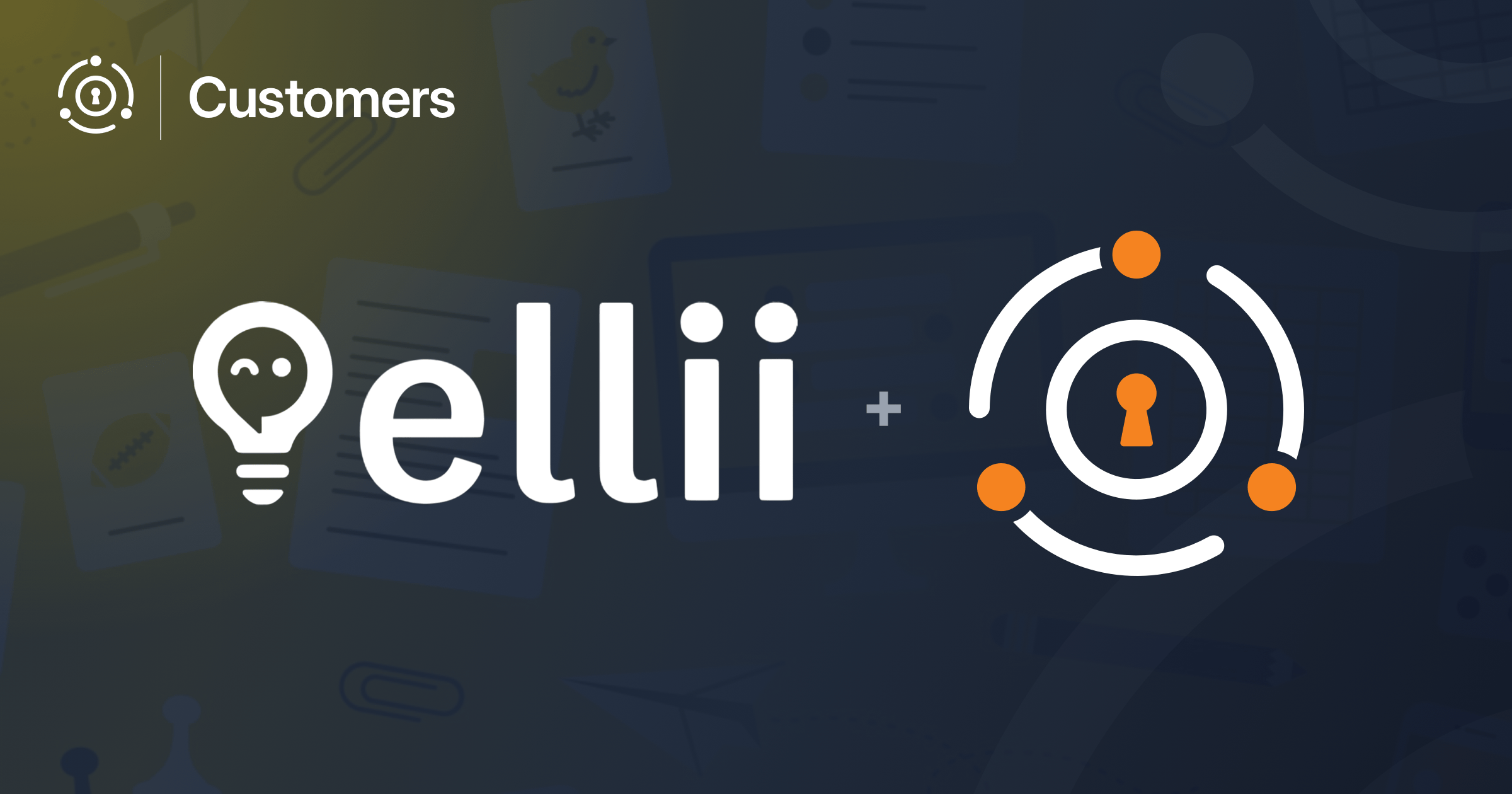Powerful Medical is a healthcare technology company developing mission-critical cardiovascular diagnostics and care coordination platforms. Their technology is deployed in hospitals where it assists physicians in life-or-death decision-making processes. As CTO and Co-founder Simon Rovder puts it: “The work we do very literally saves lives. The technology we develop every day is deployed in hospitals and assists physicians in critical decision making, often being the difference between life and death.”
When Powerful Medical evolved from serving individual users to enterprise healthcare institutions, Rovder faced a critical architecture decision that would impact both revenue growth and patient outcomes. The authentication system that worked for their individual user product wouldn’t scale to meet the stringent requirements of healthcare enterprises, and AWS Cognito’s limitations were blocking their path to market.
Summary - Powerful Medical Chooses FusionAuth
Key Takeaways
- Healthcare compliance enablement: FusionAuth’s on-premise deployment capability ensures healthcare organizations can meet regulatory requirements like HIPAA while maintaining complete data isolation and control over sensitive patient information.
- Enterprise SSO acceleration: Single sign-on (SSO) and SCIM provisioning capabilities reduce healthcare customer onboarding time from months to weeks, directly accelerating enterprise deal closure in complex procurement environments.
- Single-tenant security architecture: Unlike shared-tenant solutions, FusionAuth’s single-tenant approach eliminates “noisy neighbor” problems and provides the data isolation that healthcare institutions demand for mission-critical patient care systems.
- Development workflow integration: Downloadable deployment enables seamless integration into CI/CD pipelines and development environments, allowing healthcare technology teams to test authentication flows alongside core medical software features.
- Universal protocol compatibility: Support for SAML, OIDC, SCIM, and multi-factor authentication ensures healthcare organizations never encounter authentication barriers during enterprise sales cycles.
- Transparent healthcare partnership: Dedicated support channels and comprehensive documentation accelerate implementation timelines for healthcare technology companies where authentication delays can impact patient care delivery.
Definitions
- Single-Tenant Architecture: A deployment model where each customer’s authentication system runs on dedicated infrastructure, ensuring complete data isolation. FusionAuth’s single-tenant approach eliminates shared-resource security concerns that healthcare organizations face with multi-tenant SaaS solutions.
- SCIM (System for Cross-domain Identity Management): A standardized protocol for automated user provisioning and deprovisioning across healthcare IT systems. FusionAuth’s SCIM implementation enables healthcare organizations to synchronize employee access across multiple medical applications while maintaining audit trails for compliance.
- On-Premise Deployment: The ability to install and run authentication systems within an organization’s own data centers or private cloud infrastructure. FusionAuth’s on-premise capability is crucial for healthcare organizations requiring air-gapped deployments or specific regulatory compliance frameworks.
- Source Code Escrow: A risk mitigation arrangement where software source code is held by a neutral third party to ensure business continuity. FusionAuth provides source code escrow services that healthcare enterprises require for mission-critical authentication systems supporting patient care workflows.
- Multi-Factor Authentication (MFA): A security mechanism requiring multiple verification methods before granting access to healthcare systems. FusionAuth’s MFA implementation supports various authentication factors including biometrics, tokens, and push notifications while maintaining HIPAA compliance requirements.
Frequently Asked Questions
Q: How does FusionAuth support regulatory compliance and privacy requirements for healthcare organizations?
A: FusionAuth supports healthcare compliance through on-premise deployment options that keep all authentication data within your organization’s controlled environment, single-tenant architecture that ensures complete data isolation, comprehensive audit logging for HIPAA compliance tracking, and source code escrow arrangements that meet enterprise risk management requirements. The platform’s flexible deployment model allows healthcare organizations to maintain full control over sensitive authentication data while meeting regulatory mandates.
Q: Can FusionAuth be deployed using Docker or Kubernetes for containerized healthcare applications?
A: Yes, FusionAuth provides complete containerization support through official Docker images and Kubernetes deployment configurations. This is particularly valuable for healthcare technology companies building cloud-native architectures while maintaining the flexibility to deploy on-premise for compliance-heavy customers. The containerized deployment integrates seamlessly into CI/CD pipelines, enabling healthcare teams to test authentication alongside medical software features in development environments.
Q: How does FusionAuth’s single-tenant architecture enhance security for healthcare applications?
A: FusionAuth’s single-tenant architecture provides dedicated infrastructure for each deployment, eliminating “noisy neighbor” problems where one customer’s activity could impact another’s performance or security. For healthcare organizations handling sensitive patient data, this approach ensures complete data isolation, dedicated resource allocation, and the ability to customize security configurations specific to medical compliance requirements. Unlike shared-tenant solutions, single-tenant deployments give healthcare organizations full control over their authentication environment.
Q: How can I migrate users securely between authentication providers in a healthcare environment?
A: FusionAuth offers specialized migration tools including password-free user migration capabilities that preserve existing user credentials and authentication flows during platform transitions. For healthcare organizations, this means minimal disruption to clinical workflows and user experience while maintaining security standards. The migration process includes comprehensive audit trails, bulk user import capabilities, and gradual transition options that allow healthcare teams to validate authentication systems before full deployment in patient care environments.
Q: How do I implement single sign-on (SSO) with my healthcare SaaS product using enterprise identity providers?
A: FusionAuth provides comprehensive SSO implementation through SAML v2 and OpenID Connect protocols that integrate directly with healthcare enterprise identity providers like Active Directory, Okta, and Azure AD. The platform includes pre-built authentication flows, customizable user interfaces, and SCIM provisioning that enables automatic user synchronization across healthcare IT systems. This reduces administrative overhead for healthcare IT teams while providing seamless access to medical applications for clinical staff.
The CTO’s Dilemma: Business Impact Meets Technical Reality
As CTO, Rovder understood that authentication was a business-critical capability that could make or break enterprise deals. Healthcare institutions represent some of the most demanding customers in the world, with complex security requirements, compliance mandates, and infrastructure constraints that directly impact Powerful Medical’s ability to close deals and generate revenue.
“Healthcare is a particularly challenging field to tackle and deliver products in. Whether it is due to data protection requirements, regulatory/legal constraints, unique usability challenges, or the nuances of hospital infrastructure, designing solutions for this space requires broad understanding and out of the box thinking.”
The challenge was compounded by modern engineering realities. Powerful Medical’s team was migrating to containerized, cloud-native architectures while maintaining the flexibility to deploy on-premise for compliance-heavy healthcare customers. They needed authentication that could work seamlessly across development, testing, and production environments while integrating into their CI/CD pipelines.

Why AWS Cognito Couldn’t Scale for Enterprise Healthcare
Powerful Medical had been using AWS Cognito for their individual user offering, but when they began developing their Enterprise platform for healthcare institutions, they found its fundamental limitations:
The Deal-Breaker: No on-premise deployment capability. Many healthcare institutions require on-premise or air-gapped deployments for regulatory compliance. AWS Cognito simply couldn’t meet this non-negotiable requirement.
Limited Feature Coverage: Healthcare providers are notoriously process-heavy organizations with unique internal guidelines for everything, including authentication. Cognito does not support a large amount of authentication logic out of the box and often relies on workarounds like making customers self-develop the logic in Lambda functions. This would have been a lot of development overhead just to get common protocols working - protocols FusionAuth supports out of the box.
Integration Challenges: Powerful Medical needed authentication that could integrate directly into their development and testing workflows—not just production.
The Search for Auth That’s Theirs, Not Rented
Faced with these constraints, Rovder embarked on an exhaustive evaluation of authentication providers. But this wasn’t a typical vendor selection process—it was a comprehensive technical validation to ensure the chosen solution could meet every requirement of their demanding healthcare customers.
“We investigated basically all of the established IdP providers to see if they support all the features we anticipated we would need, and we actually tested out the features on all of them to see whether they live up to their documentation.”
Their requirements list reflected the complex needs of both modern engineering teams and healthcare enterprises:
Core Technical Requirements:
- SAML and OIDC support
- SCIM (syncing users and groups, plus deprovisioning)
- Multi-factor authentication
- Multiple authentication methods (username/password, email/magic link)
- Customizable password requirements
- Multi-tenant architecture with tenant-specific authentication rules
- Source Code Escrow for enterprise compliance
The Non-Negotiable: On-premise deployability
The Unique Need: Support for the same user across multiple tenants (critical for their specific healthcare workflows)
After testing multiple providers, Rovder discovered a sobering reality:
“The combination of these requirements eliminated all the competition and only FusionAuth was left standing. Auth0 came in second, but it did not provide On-Premise deployability.”
The deciding factor: “It was the only provider that checked all the boxes.”
Implementation: Single-Tenant Architecture for Mission-Critical Healthcare
Powerful Medical implemented FusionAuth as the authentication backbone for their enterprise cardiovascular diagnostics and care coordination platform. The implementation focused on capabilities that directly enable revenue growth while maintaining the technical flexibility engineering teams demand.

The single-tenant architecture proved crucial for healthcare customers concerned about data isolation and security. Unlike multi-tenant SaaS solutions where customer data shares infrastructure, the single-tenant approach ensures each deployment is completely isolated—a critical requirement for healthcare compliance. FusionAuth enables Powerful Medical to provide customers with single-tenancy also at the authentication system level if required.
Enterprise-Grade SSO and SCIM
“Today the greatest value FusionAuth delivers is SSO and SCIM for user provisioning. This functionality is a must for any larger healthcare provider and FusionAuth allowed us to implement it within our system in a very short amount of time.”
Developer Workflow Integration
FusionAuth’s downloadable nature meant Rovder’s engineering team could integrate authentication directly into their development and testing environments. This API-first approach eliminated the common problem of authentication working differently in development versus production, while enabling the team to include auth testing in their CI/CD pipelines.
Results: Auth That Scales with Revenue Growth
The FusionAuth implementation transformed Powerful Medical’s ability to serve enterprise healthcare customers while maintaining engineering velocity:
Rapid Enterprise Customer Onboarding
“FusionAuth brought us the ability to quickly respond to the requirements of our customers. We found FusionAuth to be a very easy to configure platform, which comes in handy when dealing with healthcare provider customers.”
Healthcare providers typically have extensive procurement processes with specific authentication requirements. FusionAuth’s flexibility allows Powerful Medical to adapt quickly to each customer’s needs without custom development, directly accelerating deal closure.
Engineering Productivity at Scale
“It has definitely increased productivity, especially when it comes to satisfying the wildly varying needs of customers. FusionAuth came with a wide range of authentication flows that you may want to use, as well as with deployment-ready frontend components to make use of them. This means we are able to cater to the needs of our customers without spending a lot of engineering effort internally to get it done.”
By offloading authentication complexity to FusionAuth, Rovder’s engineering team can focus on developing the core cardiovascular diagnostic features that differentiate Powerful Medical in the market.
Universal Customer Compatibility
“The purpose of FusionAuth was to make sure none of our potential customers would have an issue with the authentication flows/protocols supported by our platform. In that regard I can say that it definitely lived up to the expectations.”
This universal compatibility directly impacts revenue by ensuring authentication never becomes a barrier to closing enterprise deals.
The FusionAuth Advantage: Architecture, Support, and Partnership
Beyond technical capabilities, Rovder was impressed by FusionAuth’s approach to customer partnership:
Enterprise-Grade Documentation and Support
Rovder also loved the documentation and support.
“I work with a wide range of SaaS platforms daily and I am often surprised by the lack of documentation they provide. With FusionAuth we have the exact opposite experience - the documentation is usually very clear and easy to follow.”
For engineering leaders with complex implementations, comprehensive documentation accelerates development, improves developer happiness, and reduces risk.
Dedicated Partnership Model
“The FusionAuth team set up a Slack channel with us and they are very quick on the turnaround. We have reached out on several occasions and our concerns were always addressed promptly.”
This level of support is crucial for companies like Powerful Medical, where authentication issues could impact life-saving medical technology.
Looking Forward: On-Premise Deployment for Healthcare Growth
As Powerful Medical continues scaling their enterprise business, on-premise deployment capabilities become increasingly important: “In the future we also anticipate FusionAuth to help us onboard customers that require on-premise deployments, since it is one of the only feature-complete authentication solutions that supports on-premise deployments.”
This capability directly supports Powerful Medical’s revenue growth strategy by enabling them to serve the most security-conscious healthcare institutions—often the largest and most valuable customers in the market.
Key Benefits for Technology Leaders Building Enterprise Applications
Single-Tenant Architecture: Eliminates noisy neighbor problems and provides the isolation healthcare customers demand
Downloadable Deployment: Enables seamless integration into development, testing, and CI/CD workflows
Migration Excellence: Preserves user experience during platform transitions with tools like password-free migrations
Universal Protocol Support: Ensures authentication never blocks enterprise deals
On-Premise Capability: Opens doors to the most security-conscious (and often highest-value) enterprise customers
Transparent Partnership: Dedicated support channels and comprehensive documentation accelerate implementation
Cost Predictability: Clear pricing model that scales with business growth, not authentication complexity
The Bottom Line: Auth That Enables Growth
Simon Rovder’s assessment:
“Working with FusionAuth is overall a very nice experience and I am happy to continue working with partners with whom the cooperation is as smooth.”
For technology leaders building enterprise applications that need robust authentication without excessive complexity, Powerful Medical’s journey demonstrates how FusionAuth can transform authentication from a technical challenge into a competitive advantage.
Schedule a demo to see how FusionAuth can help your team deliver auth that’s yours.









